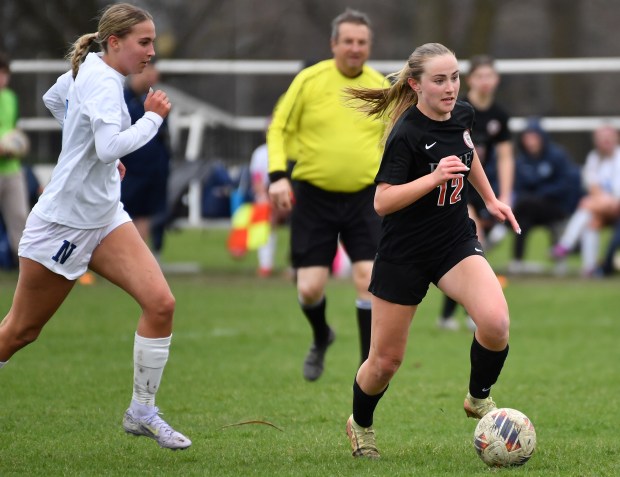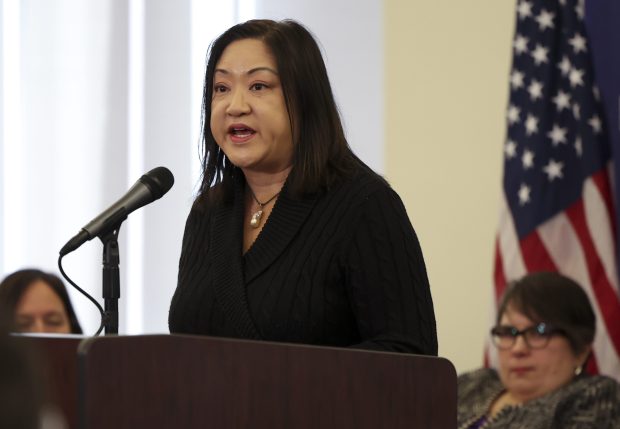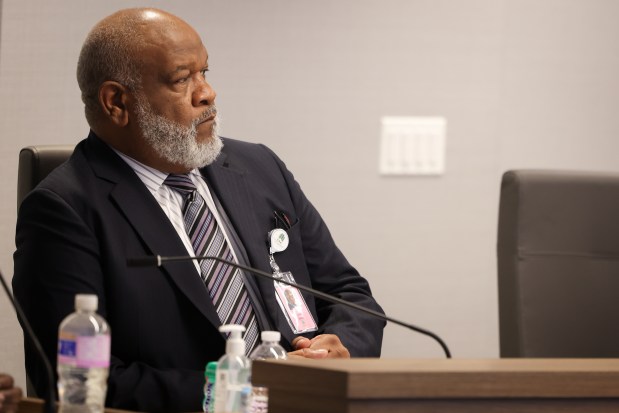For 14 hours in early March, a team of five seniors from York Community High School competed virtually in an international math challenge, up against more than 600 other math teams, many from elite schools, to win one of nine finalist spots, including three for technical computing, in the math competition known as the M3 Challenge.
Nick Cifelli, Timothy Flisk, Taylor Melind, and Steven Piotrowski, joined virtually by Jeffrey Lu, worked together in the A.C. Buehler Library of Elmhurst University, from 7 a.m. to 9 p.m. to come up with math-based solutions to real-world problems of homelessness and the need for affordable housing.
“We were given three guiding questions,” Cifelli said in a phone conversation with Pioneer Press and the entire team. “First, how will the housing supply change in Seattle and Albuquerque over the next 50 years?
“Second, how will homelessness change and fluctuate over that same time? Third, create a plan for Seattle to address homelessness.”
Their win in the Mathworks Math Modeling (M3) Challenge, a program of the Society for Industrial and Applied Mathematics sponsored by Mathworks qualified them for a trip to New York City, with expenses paid by the M3 organization, to compete on April 29 for a share of $100,000 in scholarships, with the top team to receive $20,000.
Mathworks is the maker of MATLAB and Simulink software.
Melind said she found out about the competition and got in touch with the other team members about it.
“I knew everyone I contacted would be a great fit for the group,” Melind said. “We all decided we would do the competition together.”
The team also “recruited” York math teachers as coaches, according to Ella Sak, one of the teachers.
“Our seniors this year were really motivated and hardworking,” Sak said by phone. “They asked if they could do this challenge. They were definitely the ones who were go-getters.”
Sak said she and fellow teacher-coaches Dan Hall and Nancy Mordini all work together to make the team as good as possible. The students, she said, have worked hard throughout high school on problem-solving and creativity and using math to model and solve problems.
Sak and Hall will accompany the team to New York.
Team member Flisk said a lot of the challenge is making sense out of the mathematics, but there’s more to it.
“A lot of it was narrative,” Flisk said by phone. “It was not entirely mathematics. How could we use the data mathematically, and how could we use that to paint a picture of homelessness in Seattle and Albuquerque.”
The team’s work was good enough to place among the six overall finalists from about 643 schools. For the math-challenged, that’s better than 99 % of the schools competing.
“We thought our overall approach and solution was unique enough to give us a shot,” Cifelli said, “but we were all super excited to be finalists.”
Melind agreed. “We’re very happy that our hard work has paid off,” she said. “Nice to get a little recognition for something not athletics-related.”
Cifelli plans to major in math at the University of Notre Dame in the fall. Other team members haven’t finalized school plans but expect to pursue studies in math, data science, and computer science.
Sak was asked if as seniors, the team members were experiencing the “senioritis” that can set in with high school seniors so close to graduation.
“They’re doing a practice presentation this week,” she said. “They want to do well. They’ll focus.”
In addition to York Community High School, the other finalist teams are from schools in Alexandria, Virginia; and Andover, Massachusetts.; Basking Ridge, New Jersey; Gainesville, Florida; Livingston, New Jersey; Minneapolis, Minnesota; San Diego, Calififornia; and Watford, Hertfordshire, England.
Graydon Megan is a freelance reporter for Pioneer Press.





